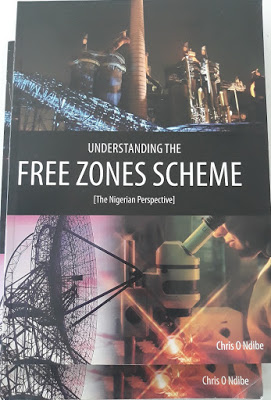The Nigeria Export Processing Zones Authority (NEPZA) says there are over 500 licensed Free Trade Zones enterprises operating across the country.
Among these are oil and gas companies, manufacturing industries, steel rolling mills, pharmaceutical industries, food processing, car assembling and new up-coming Industrial Parks and Clusters.
Prof. Adesoji Adesugba, NEPZA’s Managing Director, made this known to newsmen on Wednesday in Abuja while commemorating his first year in office.
Adesugba was appointed Managing Director/Chief Executive Officer of NEPZA, an agency under the Ministry of Industry, Trade and Investment, on July 1, 2020.
NEPZA is the Federal Government agency, established through the enactment of the Nigeria Export Processing Zones Act 63 of 1992.
It is responsible for licensing, regulating, monitoring and promoting the operations of Free zones in Nigeria.
Adesugba said that government economic policy favoured and placed priority on investment in industrial and agricultural activities, value added manufacturing and exports of such manufactured products.
The NEPZA boss said that out of the 42 licensed Free Trade/Special Economic Zones, 14 were functional and operational.
He said that others were under construction, awaiting declaration, or with physical development yet to commence.
The zones, according to him, have attracted Foreign Direct Investment (FDI) with a combined net worth of over 200 billion dollars, with players such as G. E Corporation, U. S. A; Samsung — Korea; and others.
He said the zones had attracted local investments worth N300 billion, with top Nigerian giant — Dangote Group of Companies, currently building one of the largest refineries, petrochemical and fertiliser plants in the world.
“Eko Atlantic FZ is a private sector driven free zone. The investment is worth $8 billion, projected to employ 150 workers.
“It will serve as the financial hub of Nigeria, patterned after the New York and Hong Kong financial centres,” he added.
Adesugba noted that Regina Project (EPSO), worth over $6 billion and Agbani Project (FPSO), worth $260 million were first-time projects ever witnessed in the free zone.
According to him, the Nigerian government adopted the free zone scheme as a strategic investment destination to enhance economic development and foster industrialisation.
He said there had been continous review and passionate effort by the Nigerian government to ensure international standards and best practices were maintained at the zones.
A free trade zone is a geographically designated area deemed to be outside the customs territory, within which national regulations related to production, trade and other economic activities may not be applicable.
500 enterprises operate in Nigeria’s free trade zones
RELATED ARTICLES




